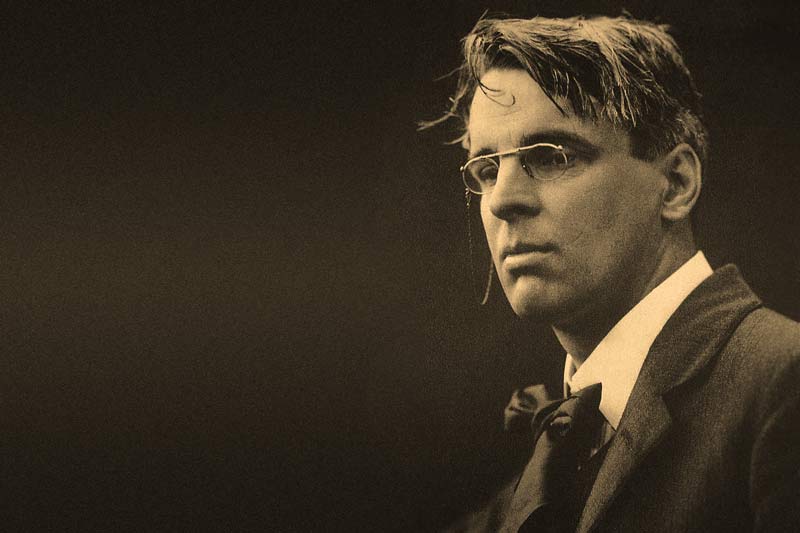
One of the curious paradigm shifts of the last half century has been the attitude of America’s high-caste cultural elite towards salty language. (I don’t say “bad” or “offensive” language, since that already begs the question. After all, offensive to whom?) There has been a major change in the way obscenity is viewed by our self-appointed masters.
“[W]hat’s lying behind the new prudery isn’t just vanilla feminism and establishment pomposity. It’s also a kind of collapse of character, a softening of the backbone...”
Back in 1964 at Berkeley, Mario Savio started the Free Speech Movement. One of its goals was to break the taboo against using four-letter words in public. Some years earlier, the comedian Lenny Bruce did his best to shock audiences with his unfettered vocabulary and raunchy subject matter. At the same time filmmakers like Mike Nichols and John Cassavetes, who were independent of Hollywood’s stifling Motion Picture Code, began to create movies with some seriously hard-boiled dialogue. Even as late as 1970 George Carlin was wowing listeners with his routine about “the seven unspeakable words.”
The appreciative audience for all these developments was the left-liberal cultural elite. It was a sign of avant-garde liberation to have no problem with salty language. Uttering four-letter words without embarrassment was a mark of one’s sophistication, and more important, one’s separation from the hopelessly repressed and conservative masses.
All that is changed. Salty language has resumed its taboo status in American culture, and has no defenders. This is an issue on which the effete politically correct left and the Bible-thumping brontosauran right are now in total agreement. Left-liberals who cheered on Bruce and Savio and Carlin in decades past all of a sudden did an about-face, and grew as censorious as their conservative opponents.
What happened? How did a status-marker of the left-liberal counterculture come to be abandoned?
There were two reasons. The first was the rise of middle-class feminism, which has always been innately hostile to anything unseemly or raucous or improper. All those prim whitebread Little Miss Muffets reading Ms. Magazine loathed salty language, which they associated with machismo, sexuality, and roistering. There has always been a prissy neo-Victorian strain in American feminists. That’s why they are the most boring people on the planet. Here in New York we call these rigid, moralistic vanilla feminists “Bambi-Nazis,” which is a perfectly apt phrase for the mix of Walt Disney and Heinrich Himmler that characterizes their thinking. Bambi-Nazi feminists were instrumental in returning the parameters of public discourse back to where they had been in 1920.
The other reason was the rise to respectability of many of the counterculture’s representatives. Protesters at Berkeley and Columbia grew up and became lawyers, investment brokers, publishers, politicians, journalists, and—most prominently of all—academics. Radical types like Tom Hayden and Todd Gitlin and John Kerry metamorphosed into well-heeled members of the left-liberal establishment, and establishments by their very nature are pompous, priggish institutions. They breathe an air of corporate self-importance. Salty language does not comport with prestige, prominence, and fat bank balances.
This return to generalized prudery had a palpable effect in the poetry world. Magazine editors have become unbelievably skittish and tight-assed about what they will and will not print. My own experience bears witness to the fact. One editor gave me trouble about a poem with the word “crap” in it, and she resolutely refused to print the word “schmuck” (an excellent Yiddish term) in a subsequently submitted poem. Another editor wouldn’t print the word “God” in an irreverent but non-blasphemous context. Various editors and publishers have objected, at one time or another, to my use of the words moron, shithead, geezer, broad, pisspot, and Chink. In the end some relented and printed the word in question. In a few cases I withdrew the poem. Very rarely did I agree to change the word, and only then if it made no appreciable difference in the poem’s overall aesthetic effect. But the larger point is this: why do these editors think that they have the job of policing the language of poets? Blue-nosed censorship of this sort puts a crimp in every poet’s style, and it positively hinders the work of a satirist.
Some persons will reply, “The editors must consider their readership and their subscribers. They cannot afford to offend the people who buy their magazines.”Well, having been involved in the editing of several poetry journals, I can say that such a reply is absolute bunk. In fact, it shows a Pollyanna-ish innocence about the audience for poetry in this country.
The only significant number of subscribers to the average poetry magazine are those persons who are published in it, or those who are angling to get published in it. For the rest of the reading public, poetry magazines might as well be on Mars. This is a brute fact of life that poets and wannabe poets have a hard time admitting, but which they know to be true. The poetry world is small, incestuous, and self-absorbed, and nobody outside of it is aware of its existence.
For this reason, there isn’t any “audience” out there to alienate. Your only subscribers are individuals who have a personal interest in sending money to your magazine. They don’t honestly care about anything in your journal except their own stuff, and therefore they aren’t going to cancel their subscriptions because some other poet uses the word shit.
No—poetry editors aren’t worried about their readership, which is minuscule and self-interested. They have become censorious because as a group they are part of the self-appointed cultural elite, and have been affected by the changes described above. Like most of their contributors they are on-the-make careerists, desperate to be part of the in-crowd. So the salty language that showed chic sophistication in 1967 has been banished, in order to show chic sophistication in 2019. It’s a laughable instance of lemming-like behavior, but all too typical of the poetry world.
Moreover, this problem is getting worse in our general culture. The latest absurdity is the push in many colleges to require “trigger warnings” as labels on any work of literature that might conceivably offend or upset some wilting flower of a student. So Shakespeare’s The Taming of the Shrew or Byron’s Don Juan now have to have labels telling stupid little teenage coeds that they might have an emotional seizure if they read these gender-insensitive works. Machiavelli‘s The Prince will have to be signposted as potentially dangerous to your equanimity if you are a utopian democratic humanist. The rape scene in Rand’s The Fountainhead will require flagging, lest the Sexual Harassment Police have a shit-fit. God only knows how they will handle Céline.
And this prompts me to think of a third (and more sinister) reason why prudery has a new lease on life. Many years ago, a critic whose name I cannot recall said that an overwhelming and insoluble problem in contemporary culture was “elephantiasis of the moral sentiment.” By this he meant that feeling, emotion, heartfelt concern, and affective reactions had become so dominant and paramount in people’s minds that a large percentage of the population was now incapable of judging anything objectively or with cool detachment. Instead these persons (and they included many individuals of wide influence and power) fell back upon pure sentiment, and justified this as being “the morally correct thing to do.” As a result, both public policy and private doings were now hopelessly contaminated by the willful failure to perceive unpleasant facts, or unresolvable interest conflicts, or hard-boiled enmity. Dreamy hope and wishful thinking have replaced rational calculation. It was now our duty, regardless of any other consideration, to be “nice” and “sensitive,” and to see to it that others followed suit. If we didn’t, some poor little oppressed waif somewhere might feel bad. Fiat benignitas, ruat coelum!
We can see here that what’s lying behind the new prudery isn’t just vanilla feminism and establishment pomposity. It’s also a kind of collapse of character, a softening of the backbone, an inability to tolerate the slightest affront to one’s (or anybody else’s) shaky self-esteem. Say what you like about The Bad Old Days, but at least folks back then had thick skins.

